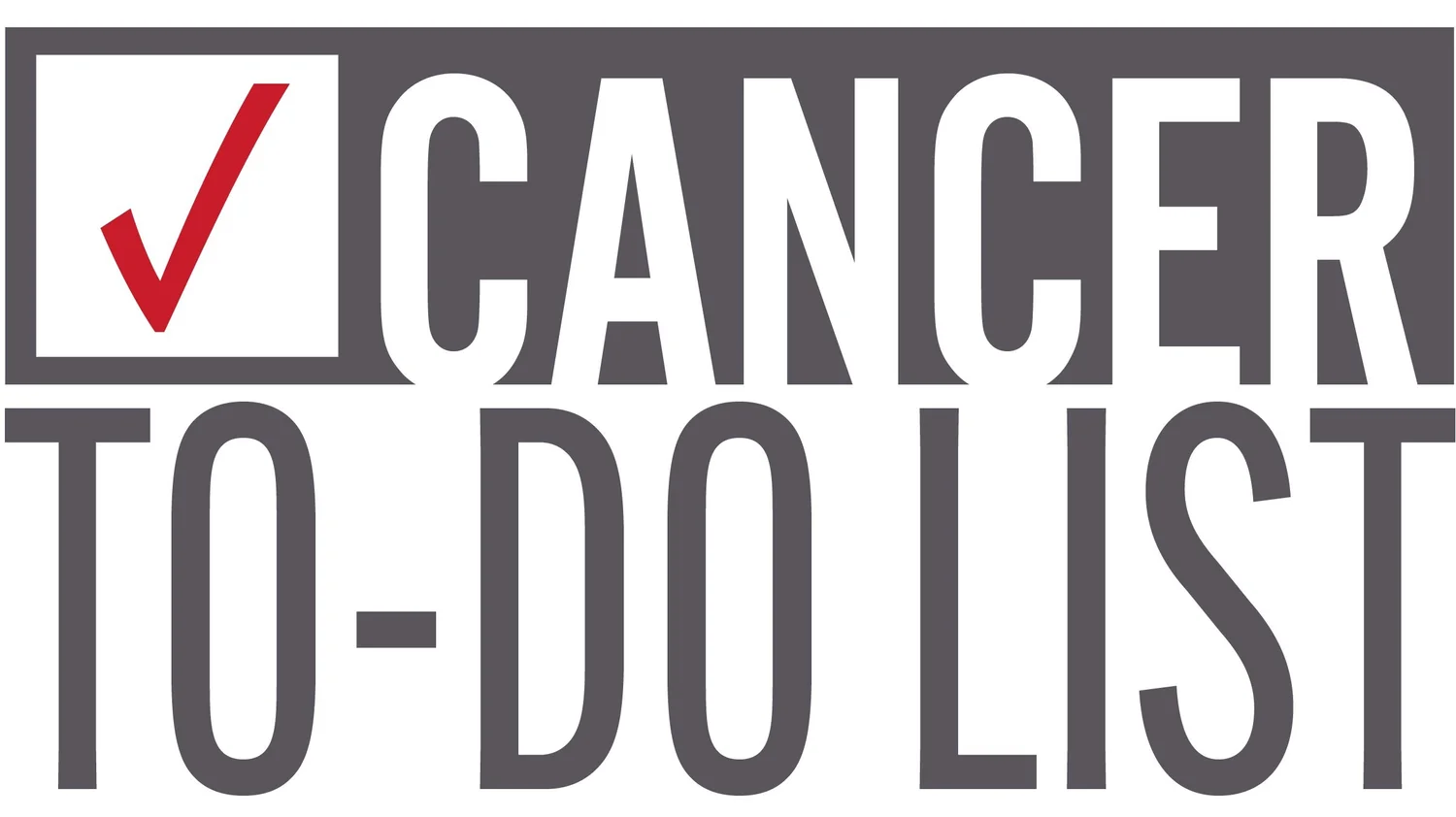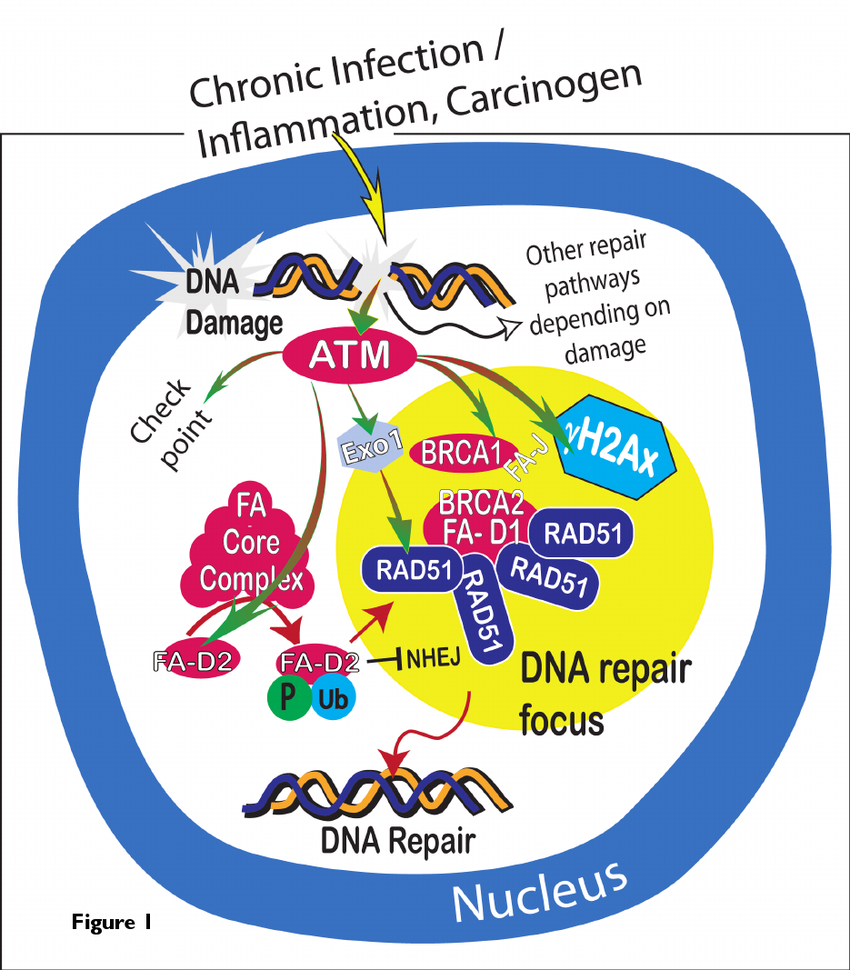Cancer Gene Shocker
Learning that I Have a cancer gene
I was surprised to find out that I have a gene that causes breast, ovarian, prostate, and stomach cancers. There was no history of these cancers in my family.
After our surgeries, Joel and I were both given the option to have a genetic blood test to see if we had a family history of our specific types of cancer. I decided to do the testing simply because we went through this with Joel, and I knew the genetic doctor. I was sure it would come back negative like it did for Joel, but surprisingly it did not.
The doctor walked into the treatment room at my follow-up appointment and said, "Oh Julie, this whole journey has been hard on you. I'm sorry to share this news, but you have a gene that causes cancer. You got this gene from one of your parents." I just stood there in shock.
I was alone at the appointment because Joel had a conflict in his schedule, and we both thought this would just be a quick, routine appointment to learn that my cancer had nothing to do with genetics. That was what happened at his follow-up appointment. Because of Joel’s Jewish heritage, he was tested for Lynch syndrome. (1 in 40 Jewish people have this inherited risk of colon cancer.) So, we were thinking there was a much greater genetic risk for him, but not for me.
The doctor said that this meant every cell in my body had a “defect.” For a brief moment I thought, “I’m defective!” But I calmed myself down to listen to what she had to say.
An image showing the DNA damage and breakdown that occurs with cancer genes.
That day I learned I have a gene called RAD51D. Currently, there is no evidence that this gene carries as much of a risk as having a BRCA gene. In the mid-1990s, scientists discovered two genes: BRCA1 and BRCA2 (BR=breast; CA=cancer). BRCA genes don't cause cancer directly. They increase the likelihood of mutations that can lead to breast and/or ovarian cancer.
A positive blood test for a cancer gene does not indicate the presence of breast cancer or that a person who carries one of these genes will definitely get breast cancer. There is still a lot to learn about genes and the behavior of cancer. This is an area of scientific research that is getting a lot of attention.
The oncologist explained that they just discovered the RAD51 gene in 2011 and haven't done enough research yet to fully understand the extent of risk. Cancer genetics are continuously evolving, so she encouraged me to check for updates that would become available over time.
My Decision to get a Full Hysterectomy
The oncologist said that because of this gene, my body has a harder time detoxing. Additionally, she was most concerned about the risk of ovarian cancer. Apparently RAD51D carries the greatest risk for ovarian cancer. Since I still had my ovaries and wasn't yet in menopause, she strongly recommended an oophorectomy (surgical removal of ovaries) as soon as possible. Due to the PET scan results showing an area of concern in my pelvis, I decided to not only have my ovaries removed, but to have a total hysterectomy.
Perhaps I was in the 5-10% (or some believe this is 20%) where genes actually have something to do with the cancer. I had been racking my brain as to how this happened to me, so that was the only relief I felt in those confused moments. My diet and lifestyle had been stellar for over 20 years. However, I believed in my heart that STRESS was the true instigator. I reminded myself that I would never fully know the cause. It was just comforting on some level to have some answers.
What This Means For My Family
Right after my surgery, the cancer center did a family genetics blood test. It took over a month to come back. I had an appointment with an oncologist who handles genetics. It was a shocking moment to learn that I have the cancer gene!
The doctor gave me paperwork about the gene, along with forms for my family members to take to their doctors to get tested. “Oh, my family!” My mind raced about the risks for my family, and even my own kids! The doctor said that Hannah and Max have a 50% risk of inheriting my gene, but she would not recommend testing for them until they are 25-30 years old.
After the appointment, I went outside and tearfully called my sisters. There was silence on the other end. One of my sisters was very curious and the other seemed very distant and disinterested. I didn’t blame her. When I called my brother, he wasn’t able to absorb the news, but later he became extremely interested and is eventually going to get tested. My youngest sister got tested, and it turns out she has the same gene as me. Her doctor even investigated some cysts in her ovaries and said that my diagnosis may end up saving her life. My sister had an oophorectomy a few months later, and there was no sign of cancer. Hurray!
In the years that followed, I became more and more curious as to whether we got the gene from my mom or dad. I also became concerned about my cousins and their children and grandchildren. I wanted to be sure they had the chance to know about the gene on either side. My dad died in 2020 and we never had a chance to have him tested. In early 2022, I asked my mom if she would be willing to be tested for the gene. She was willing, and my genetic oncologist agreed to test her. We got the results on August 29, 2022, and my mom was negative for the gene, so it did come from my dad. This was what I suspected all along. My mom has seven sisters, and although there is some cancer history on her side, there isn’t any breast or ovarian cancer. However, my dad has two brothers and hardly any women in the family. His mom died from multiple cancers while still young.
When we got this news, a floodgate of emotions poured out of me. My dad’s birthday was the day before, so I was already missing him - but this news made me miss him even more. This appointment also caused me to revisit that day when I received the shocking news that I had a cancer gene. Tears are sometimes good; they were a sign for me that I had come to grips with this gene, the diagnosis, and that I have hope for the future.
Genetics vs. Epigenetics
Whether or not my cancer gene contributed to the fact that I got cancer, I am thankful that I already understood that — according to research — cancer genes are in all of us, but there is an on/off switch. Genes turn on in people who get cancer and remain off in people who don’t. The science of epigenetics shows that our DNA is not our destiny, and that diet and lifestyle can change the expression of genes, even poor genes. I have heard it said another way, "Genes may load the gun, but it's diet and lifestyle that pull the trigger."
So, even if we have a gene that causes cancer or any other disease, we can do things to change the way those bad genes behave. No matter what your genes show, make a commitment to mastering the basics of your health routine! Visit the Thrive page to learn more.


